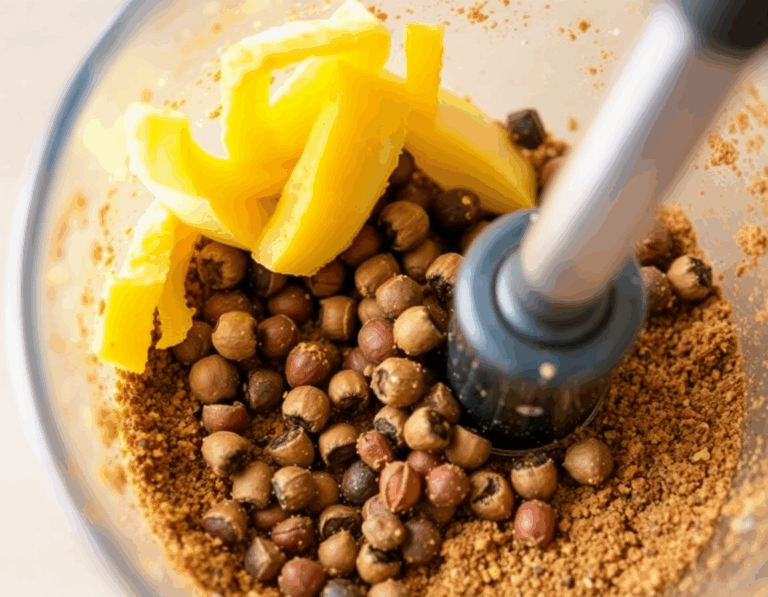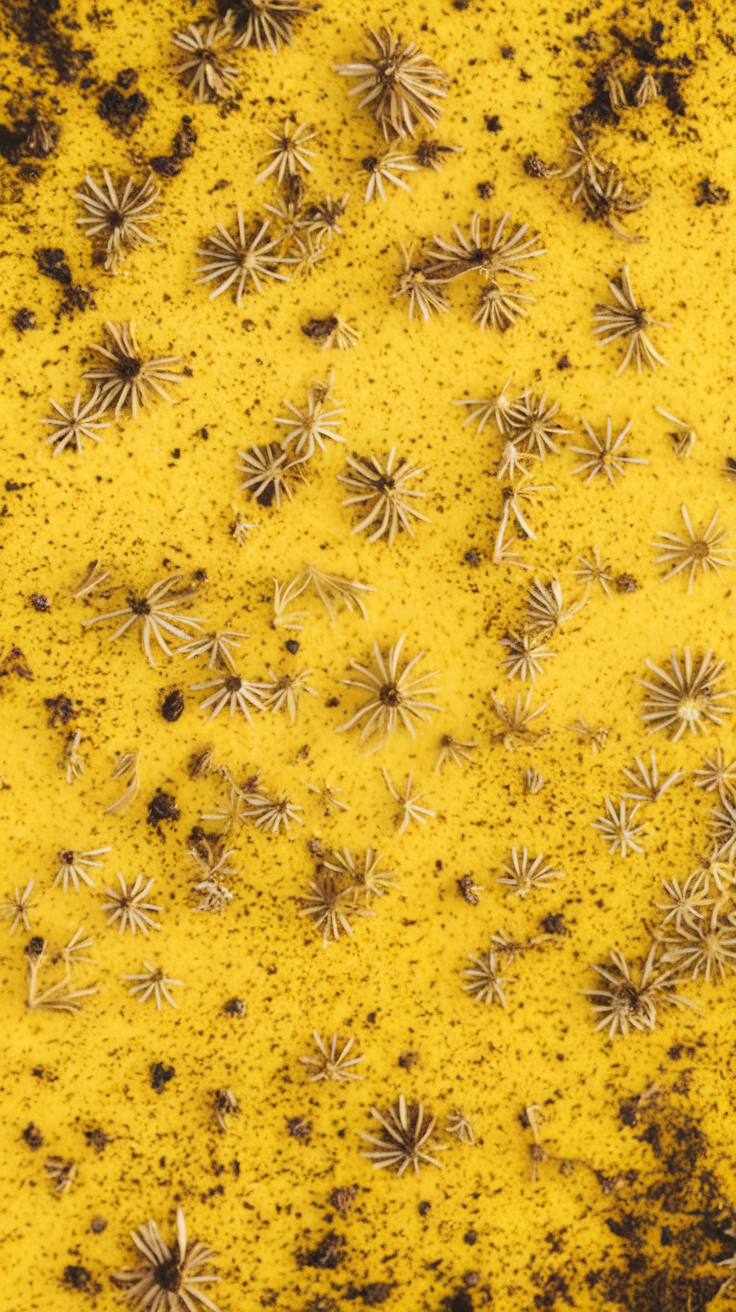Oh, lemon pepper seasoning, what a delightful little concoction! It’s like a burst of sunshine on your taste buds, bright and zesty, with a peppery kick that keeps you on your toes. I remember the first time I sprinkled some on a simple roast chicken—pure magic. It’s the kind of seasoning that makes you wonder why you ever settled for anything less.
Steps
- Preheat your oven to the lowest possible temperature. Use a paring knife or vegetable peeler to carefully remove the outer yellow zest from the lemons, avoiding the white pith.
- Line a baking sheet with parchment paper and spread the lemon zest strips in a single layer. Place the sheet in the preheated oven and dry the lemon zest for 2-3 hours, checking periodically to ensure they don’t over-dry.
- Once the lemon zest is completely dried, transfer it along with the peppercorns to a spice grinder or high-powered blender. Grind the mixture until it’s mostly smooth, leaving some coarser pieces of peppercorn intact.
- Add the salt to the ground lemon and pepper mixture. Store the finished lemon pepper seasoning in a small, airtight jar for optimal freshness.

Ingredients
- Zest from 5 large lemons
- ¼ cup (40 g) whole peppercorns
- 2 teaspoons (5 g) coarse salt
Nutritional Values
Calories: 120 | Total Fat: 0g | Saturated Fat: 0g | Trans Fat: 0g | Unsaturated Fat: 0g | Cholesterol: 0mg | Sodium: 1170mg | Carbohydrates: 12g | Fiber: 12g | Sugar: 12g | Protein: 6g
FAQ
- What ingredients are typically found in lemon pepper seasoning?
- Lemon pepper seasoning usually includes dried lemon zest, pepper, and salt. Some variations may also incorporate garlic or onion powder, but the classic blend focuses on the simple combination of lemon and pepper. Always check the label of store-bought versions for any additional ingredients.
- How can lemon pepper seasoning be used in cooking?
- This versatile seasoning can enhance a variety of dishes. It is commonly used on fish and chicken, especially in popular recipes like Lemon Pepper Chicken Wings. It can also be added to seafood, pasta, or even popcorn to impart a zesty flavor.
- Does lemon pepper seasoning contain salt?
- Most lemon pepper seasonings, including both homemade and store-bought, do contain salt. If you are monitoring your salt intake, you can adjust the salt level in homemade versions or even eliminate it entirely, adding salt to individual dishes as needed.
- What spices complement lemon pepper seasoning?
- To add depth to your lemon pepper seasoning, consider incorporating additional spices like dried basil, oregano, thyme, or dill. For a spicy kick, try adding dried ancho chile or cayenne powder. These additions can enhance the seasoning’s versatility for various dishes.
- How long can I store lemon pepper seasoning?
- Lemon pepper seasoning will maintain its potency for about six months, though it can last up to two years. Storing it in the freezer can help preserve its freshness and extend its shelf life, ensuring it remains flavorful when you need it.
Tips
- Customize Your Salt Content: When making lemon pepper seasoning at home, consider adjusting the salt level to suit your dietary needs. You can make it salt-free initially and add salt as desired for each dish.
- Enhance with Additional Spices: Experiment by incorporating spices like dried basil, oregano, or cayenne pepper to give your lemon pepper seasoning a unique twist. Dried dill is particularly great if you’re planning to use it on fish or shrimp.
- Preserve Freshness: To maintain the seasoning’s potency, store it in the freezer. This helps keep it fresh for a longer period, even beyond the typical six-month shelf life.
- Perfect Your Lemon Zest: When zesting lemons, focus on removing only the yellow outer layer to avoid the bitter white pith, which can alter the flavor of your seasoning.
Equipment
- Spice grinder or high-powered blender
- Parchment paper
- Airtight storage jar

